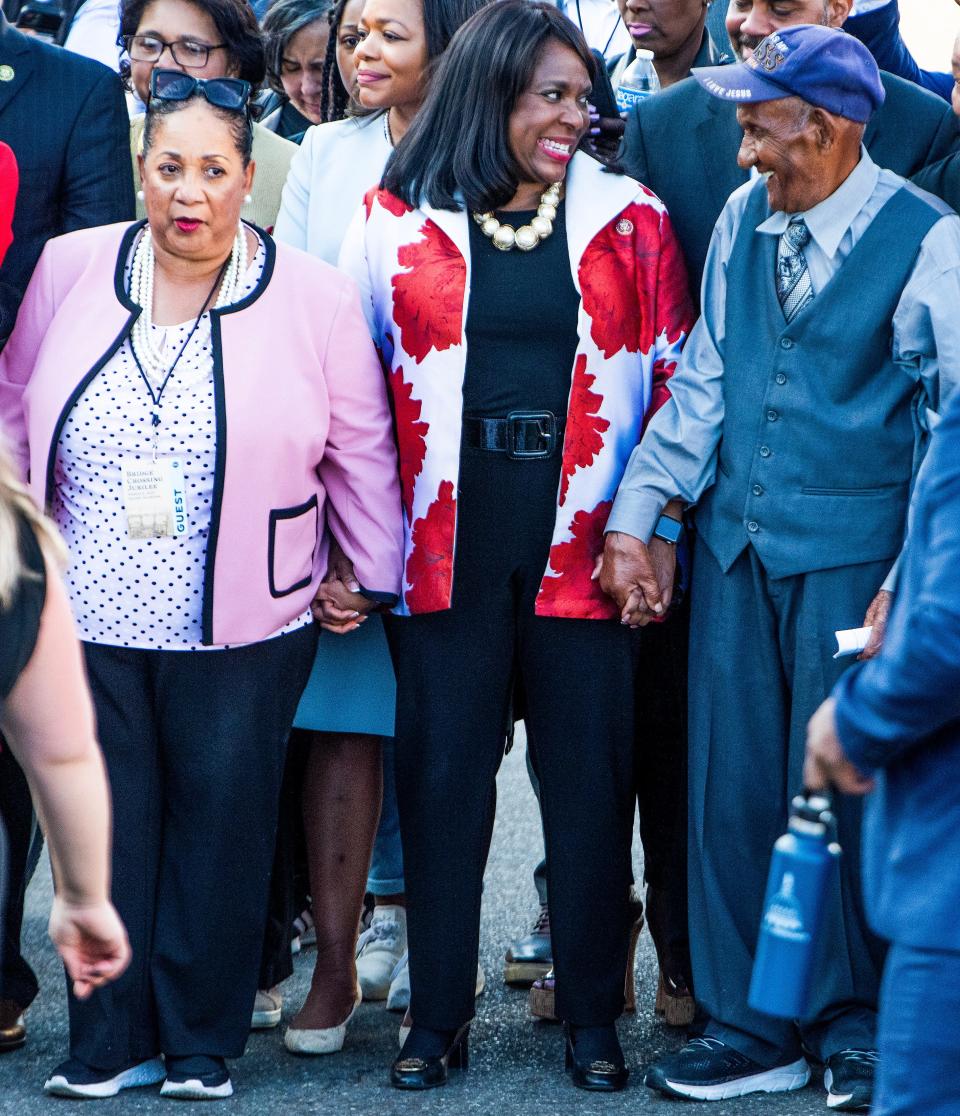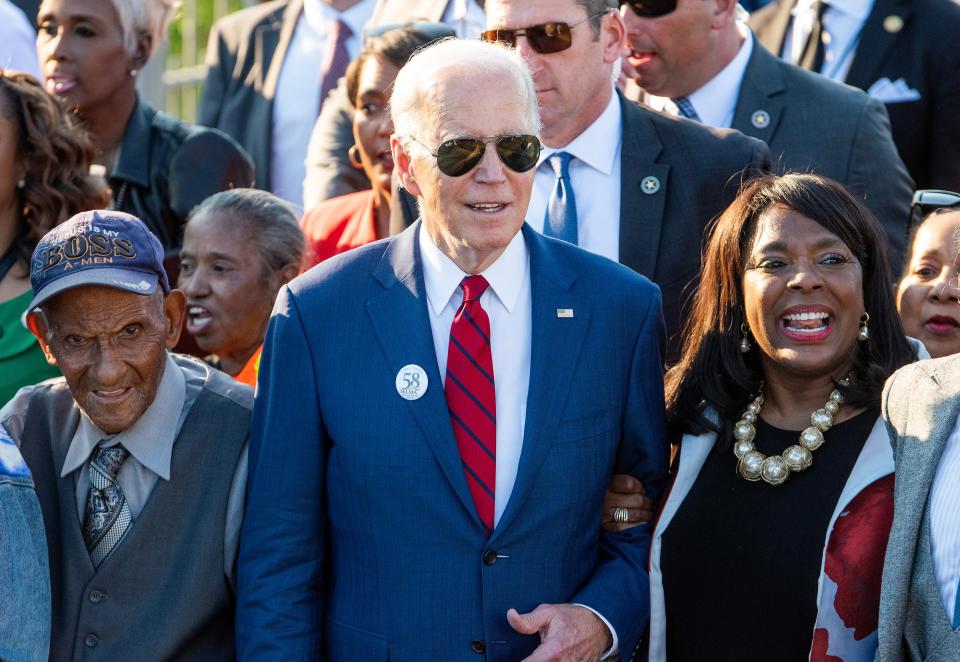'The power of ordinary Americans': Remembering Selma foot soldier George Sallie
Rain fell in Selma on Saturday, Jan. 27 — the day that hundreds of people honored the legacy of lifelong Alabamian and civil rights activist George Sallie.
Before his death at the age of 94 on Jan. 18, Sallie was the oldest living Selma foot soldier.
Back in 1965, he marched across the Edmund Pettus Bridge among the likes of icons like John Lewis, peacefully advocating for Black people’s right to vote. When they crossed the bridge, the group discovered a mass of state and local police officers who ordered them to turn around. When the marchers did not, the officials attacked with billy clubs, tear gas and violence.
Sallie was among the dozens injured. Even decades later, he still bore scars on his forehead from where officers beat him that day, now known as Bloody Sunday.
Many point to the march and the violence that ensued as a catalyst that led to the passage of the Voting Rights Act of 1965 just three months later. When the marchers finally achieved their goal, President Lyndon Johnson signed the bill into law and national attention drew away from Selma, Sallie stayed.
More: How a one-armed former slave united Montgomery in the early 1900s
He often sat at the foot of the Pettus Bridge so that he could share his story, his first-person account of history, with passersby and tourists who came through the area.
“Mr. Sallie’s life stands as a testament to the power of ordinary Americans to achieve extraordinary social change,” U.S. Rep. Terri Sewell said. “He never missed a bridge crossing commemoration, and I was honored to stand alongside him and President Biden last year as he marched across the Edmund Pettus Bridge for one last time.”

After Sallie’s death, Sewell took to the floor of the U.S. House of Representatives in Washington, D.C., to honor him. She was right in saying that Sallie attended every single Selma Jubilee, the annual weekend celebrating Selma’s civil rights contributions. Each year, following speeches and events, hundreds of participants bow their heads and walk the same path that Sallie and his fellow activists did across the Pettus Bridge in 1965.
In recent celebrations, Sallie has regularly been at the head of the commemorative walk, marching hand in hand with numerous American leaders. In fact, he marched alongside two acting presidents when they made the trip to Selma: Barack Obama in 2015 and Joe Biden in 2023.
More: EJI unveils new Rosa Parks statue in downtown Montgomery
After last year’s march, Biden sent Sallie a letter thanking him for continuing to march and marching next to him. The letter was read aloud during Sallie’s funeral.
'A fighter for good'
While Sallie is most notably remembered for fighting for voting rights, he was a fighter long before the 1960s. Sallie grew up in a family of sharecroppers in rural Alabama, and he fought in the Korean War during his early 20s.

“George Sallie was an American patriot for his service in Korea and a hero for his activism in Selma,” Montgomery Mayor Steven Reed said in a statement. “The scars he carried from these battles were a reminder of what Black Alabamians had to overcome not only to vote but to be treated with dignity.”
Sallie’s family asked former state Sen. Hank Sanders to give a speech at the funeral, but Sanders said that was a difficult thing to do because Sallie’s legacy “spoke so loudly” on its own.
More: University of Alabama website shares historical stories of enslaved people on campus
“George Sallie was a fighter for right. A fighter for good. A fighter in lifting others. A fighter in protecting others,” Sanders said in a statement on social media. “George Sallie never stopped marching for freedom. He marched for freedom until his last months of life.”
On Jan. 27, ahead of Sallie’s funeral services, dozens of people walked across the bridge, just as he had done so many times before. Only this time, they weren’t thinking about the city’s historic significance or the hundreds who walked there before them in the name of civil rights. They just thought of one man who had given so much to the city and the people he loved.
Hadley Hitson covers children's health, education and welfare for the Montgomery Advertiser. She can be reached at hhitson@gannett.com. To support her work, subscribe to the Advertiser.
This article originally appeared on Montgomery Advertiser: Alabama honors Selma foot soldier George Sallie, dead at 94

